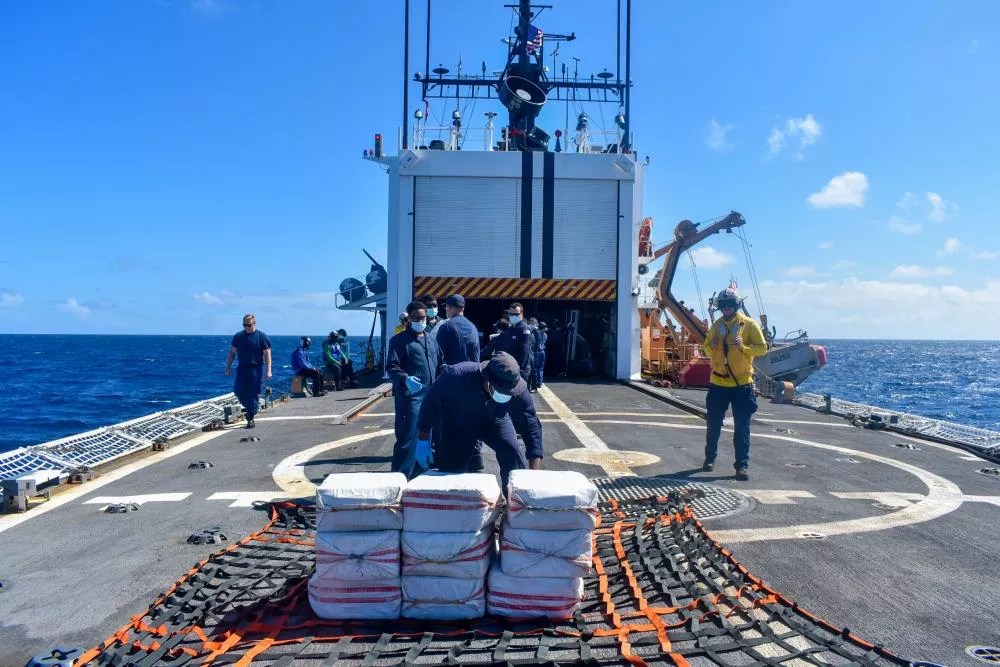
Photo by U.S. Coast Guard, Ensign Olivia Anthony

Audio By Carbonatix
Four men have been indicted on maritime drug-trafficking charges in a large-scale cocaine bust arising from U.S. Coast Guard operations off the coast of Aruba.
The U.S. Drug Enforcement Agency says the raid yielded a seizure of 38 barrels filled with cocaine from a “go-fast” boat intercepted by the Coast Guard. The shipment weighed roughly one metric ton, potentially equating to more than $10 million in product.
The defendants were indicted in the Southern District of Florida on December 14.
The Coast Guard’s deployment in the Caribbean Sea has yielded several sizable busts in recent months as officers patrolled around distribution routes leading out of South American cocaine production hubs. Among other operations, Coast Guard crews worked aboard the USCGC Forward and the Dutch Navy vessel HNLMS Holland on a 60-day deployment ending in mid-December, which amassed 18,500 pounds of confiscated cocaine valued at more than $240 million.
In this latest criminal case, prosecutors recount how the Coast Guard intercepted the “go-fast” boat, a type of light, speedy vessel, on November 23 after a patrol aircraft spotted it zipping through international waters about 125 miles from Aruba, an island nation just off the coast of Venezuela. The Coast Guard took over operational control of the HNLMS Holland as part of a Caribbean patrol partnership between the U.S. military and the Royal Netherlands Navy.
With support from a helicopter unit, Coast Guard Law Enforcement Detachment 408 launched a raid boat from the HNLMS Holland and detained the four men manning the cocaine-loaded vessel, according to a Drug Enforcement Agency affidavit.
The suspects were hauled back to the HNLMS Holland before being brought to South Florida for prosecution. Two defendants said they were from Venezuela; one claimed Colombian nationality, while the fourth man said he was from the Dominican Republic.
The Coast Guard is empowered to arrest suspected drug traffickers in international waters under the Maritime Drug Law Enforcement Act, so long as the intercepted boat is deemed “without nationality.” A boat meets that definition if the master of the vessel fails to state the boat’s nation of registration upon request by the Coast Guard – or if the master’s registration claim is not verified when the Coast Guard contacts the boat’s host nation.
Though federal courts across the country are split on the issue, Florida case law allows for a boat to be deemed “without nationality” if no one aboard claims to be in charge and Coast Guard officers do not designate a crew leader to ask about the vessel’s nationality. That appears to be the scenario at play in the current case.
“None of the persons on board identified themselves as the master, and no claim of nationality was made for the vessel. Accordingly, the [boat] was treated as a vessel without nationality and, therefore, subject to the jurisdiction of the United States,” the DEA affidavit states.
Last week, a federal judge in Miami set the four defendants’ tentative trial dates for March. The defendants are listed in the criminal complaint as Jesus Hernandez Osorio, Luis Vidal, Oscar Correno, and Luis Jose Alfonzo.